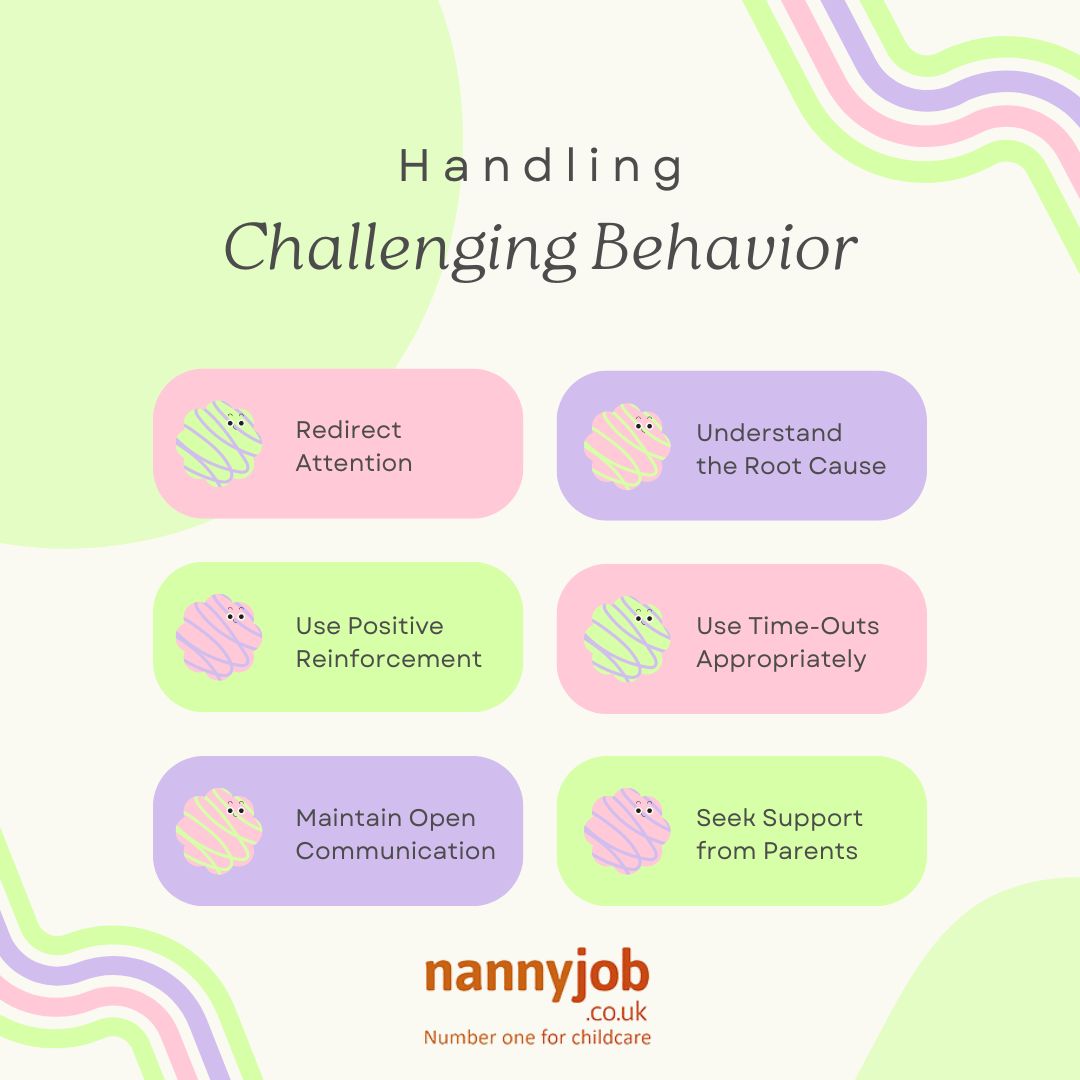Introduction
Dealing with challenging behaviour in children can be one of the most demanding aspects of parenting and childcare. Whether it’s tantrums, defiance, or aggression, managing these behaviours effectively is crucial for a child’s development and the well-being of everyone involved. As nannies, parents, and childcarers, it’s important to approach challenging behaviour with patience, consistency, and a clear strategy. In this post, we’ll explore practical ways to manage challenging behaviour and the importance of seeking support from parents.
1. Understand the Underlying Causes
Challenging behaviour often has underlying causes, such as frustration, anxiety, or unmet needs. Observing the context in which the behaviour occurs can provide valuable insights. Is the child tired, hungry, or overwhelmed? Understanding these triggers can help in addressing the root cause rather than just the symptoms.
2. Set Clear Expectations and Boundaries
Children need clear rules and boundaries to feel secure. Establish consistent expectations for behaviour and communicate them clearly. Use simple language and be specific about what is acceptable and what is not. Consistency is key; ensure that all caregivers are on the same page regarding rules and consequences.
3. Use Positive Reinforcement
Positive reinforcement encourages good behaviour by rewarding children for making the right choices. Praise, stickers, or extra playtime can motivate children to behave well. Focus on acknowledging their efforts rather than just the outcomes. For example, praise a child for trying to stay calm during a frustrating situation, even if they didn’t fully succeed.
4. Implement Time-Outs and Consequences
Time-outs and appropriate consequences can be effective tools for managing challenging behaviour. Time-outs provide a break for children to calm down and reflect on their actions. However, ensure that the time-out area is safe and not perceived as a punishment. Consequences should be logical and related to the behaviour, such as losing screen time for not following rules.
5. Teach Problem-Solving Skills
Equip children with problem-solving skills to handle conflicts and frustrations. Encourage them to identify the problem, brainstorm possible solutions, and choose the best one. Role-playing scenarios can be a helpful way to practice these skills. Teaching children how to express their feelings and resolve conflicts can reduce challenging behaviours.
6. Remain Calm and Consistent
Children often look to adults for cues on how to react. Staying calm and composed during challenging situations can help de-escalate the situation. Consistency in your response to behaviour is crucial; children need to know that rules and consequences are predictable and fair.
7. Seek Support from Parents
Communication with parents is essential in managing challenging behaviour. Share observations and strategies that have been effective, and seek their input. This collaboration ensures a consistent approach at home and in childcare settings. Schedule regular check-ins to discuss progress and any concerns. If necessary, suggest professional support, such as a child psychologist or counsellor, to provide additional guidance.
8. Take Care of Yourself
Managing challenging behaviour can be stressful. It’s important to take care of your own mental and emotional well-being. Ensure you have a support system in place, whether it’s friends, family, or professional networks. Taking breaks and practicing self-care can help you stay patient and effective in your role.
Conclusion
Managing challenging behaviour in children requires a thoughtful and consistent approach. By understanding the causes, setting clear expectations, using positive reinforcement, and collaborating with parents, caregivers can create a supportive environment that encourages positive behaviour. Remember, it’s a journey that requires patience and ongoing effort, but with the right strategies, you can help children develop better self-control and emotional regulation.

